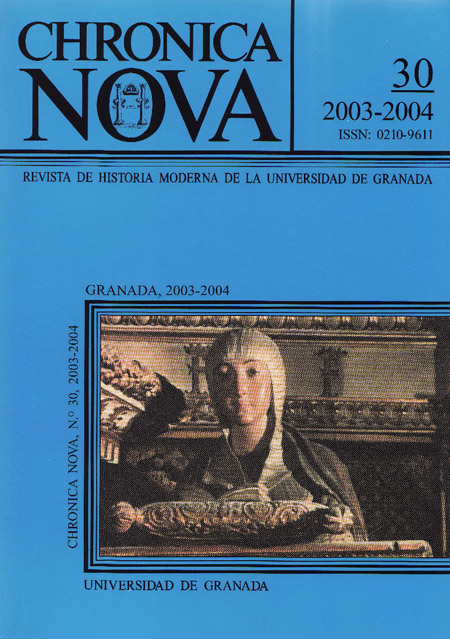The gypsys in the reign de Felipe II (1556-1598).The failure of a integration
DOI:
https://doi.org/10.30827/cn.v0i30.1898Keywords:
Gypsies, Ethnics Minorities, Galleys Pain, Almadén Mines, Penal Justice, Granada Kingdom RepopulationAbstract
The gypsys arrived at the reign of Felipe II after a process in which the form of life is criminalized and a negative stereotype is created. Repression and utilitarianism in the sentences of the gypsys men run parallel during this period, and to the pain of galleys for the men, restored already by Carlos V, he now united of whip and exile for the women. Nevertheless, the ethnic conflict breaks out again even more when restriction of movements is considered in 1586. Since this moment is commited to them to take population and obtain license to be able to move from their address to the fairs and other places. These measures prompt a greater neighborhood, but in some cases fails when the local authorities denied them, or when it obtained then it breaks, especially with occasion of the raid of 1572/1573. The gypsy, before the fear to fall under the judicial gear will find in some cases adaptive mechanisms that they allow him to subsist in an excluding society.Downloads
Downloads
Published
How to Cite
Issue
Section
License
Nuestra revista se atiene a las recomendaciones para la implementación del Artículo 37 Difusión en Acceso Abierto de la Ley de la Ciencia, la Tecnología y la Innovación:
- Los/as autores/as cuyas contribuciones sean aceptadas para su publicación en esta revista conservarán el derecho no exclusivo de utilizar sus contribuciones con fines académicos, de investigación y educativos, incluyendo el auto-archivo o depósito de los artículos aceptados en repositorios institucionales o temáticos de acceso abierto de cualquier tipo en un plazo máximo de seis meses.
- Preferiblemente se permitirá el uso de la versión publicada de las contribuciones científicas, que estarán accesibles en abierto tan pronto como sea posible.
-
Que en caso de que el trabajo sea aprobado para su publicación, el/la autor/a autoriza de manera ilimitada en el tiempo a la entidad editora para que incluya dicho texto en Chronica Nova y pueda reproducirlo, editarlo, distribuirlo, exhibirlo y comunicarlo en el país y en el extranjero por medios impresos, electrónicos, CD, Internet o cualquier otro medio conocido o por conocer.






 ISSN-e: 2445-1908
ISSN-e: 2445-1908










